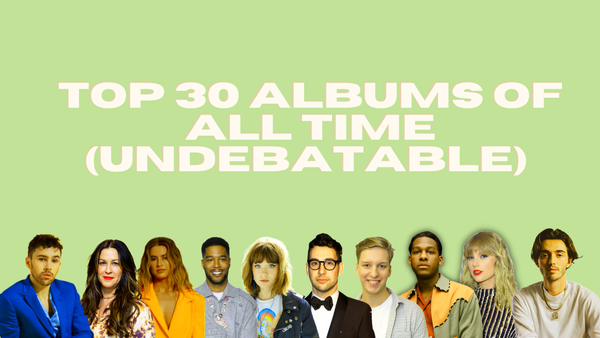Adele’s most recent album, “25”, went down in history as the fastest-selling album in the UK. In its first week it sold 3.38 million copies worldwide. Yeah, that’s a big number, but let me put it in context for you… it’s more than Taylor Swift’s “1989” sold in an entire year.
In a roaring global abundance of flashy, glittery, and racy pop-culture, Adele sparkles with nothing more than her electrifying voice. If you’ve ever seen her perform, you know that she is remarkably minimal on stage, embodying a “less is more” image. I would argue that the most extravagant part of her performances is her pair of thick, black, full-of-personality eyelashes. She is nothing like other pop stars in her category, and she persistently separates herself from the over-glamorized and super-sexualized. Adele has invented a new division in pop-culture.
So what is it that sets Adele so far apart from Beyoncé, Taylor Swift, and Lady Gaga? It's everything that she doesn’t do. She doesn’t dress provocatively. She doesn’t shimmy, or shake. She doesn’t cue to surprise explosions on stage. In the absence of dramatic and elaborate elements, we get an intimate look at Adele’s natural grace and charm. By keeping her performances simple, she demands attention to the music itself. She displays her music bare—without distractions—and she performs with her voice, not her body.
There is also a welcoming realness about her, even in her onstage presence. Nothing about her strikes us as artificial; she has a refreshing human quality to her. She seems to embrace her imperfections rather than conceal them. She comes across as wiser than her flesh-baring peers, but always humble and almost insecure—which, with a voice like hers, is hard to be. Her natural aura—be it her indifference towards fame, her unfiltered language, or her honesty about body image—is unparalleled in today’s music industry.
What makes Adele even more relatable though, is the kind of experiences her songs are about. Each of her songs plays to the truth that human sadness is always more relatable than human happiness. She writes universal song lyrics that tug at our nostalgia and sentimentality. She has a way of infusing lyrics with depth and emotion that makes us feel like she sympathizes with us in our own tragedies and regrets. Wearing her heartache on her sleeve, she sometimes cries her way through a song, appearing just as vulnerable as us.
There’s a reason Time claims that Adele is “music’s past, present, and future”. It’s because her dignified lyrics and pure talent tell her story, not her outfits or her stage dancers. In every aspect of her work, Adele defies pop-cultural demands and next-best trends. She refuses to become a brand, so don’t expect to see her star in any cheesy films, launch any perfumes, or remix any of her songs with techno beats. She is a singer, and she intends to sing. She will continue to satiate audiences with her soulful music, communicating everything with her voice. Fame will not change her.




















